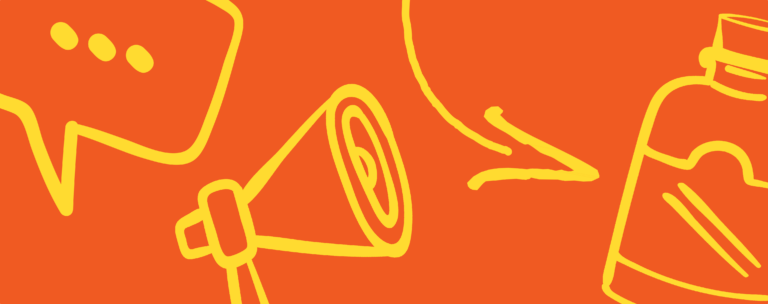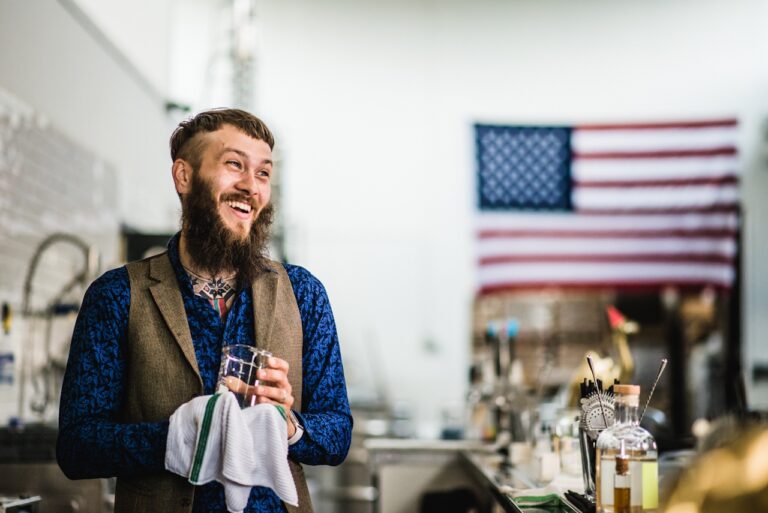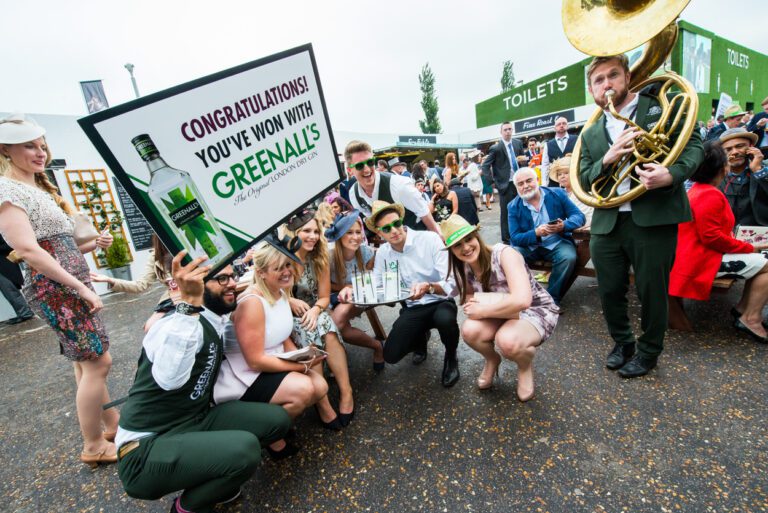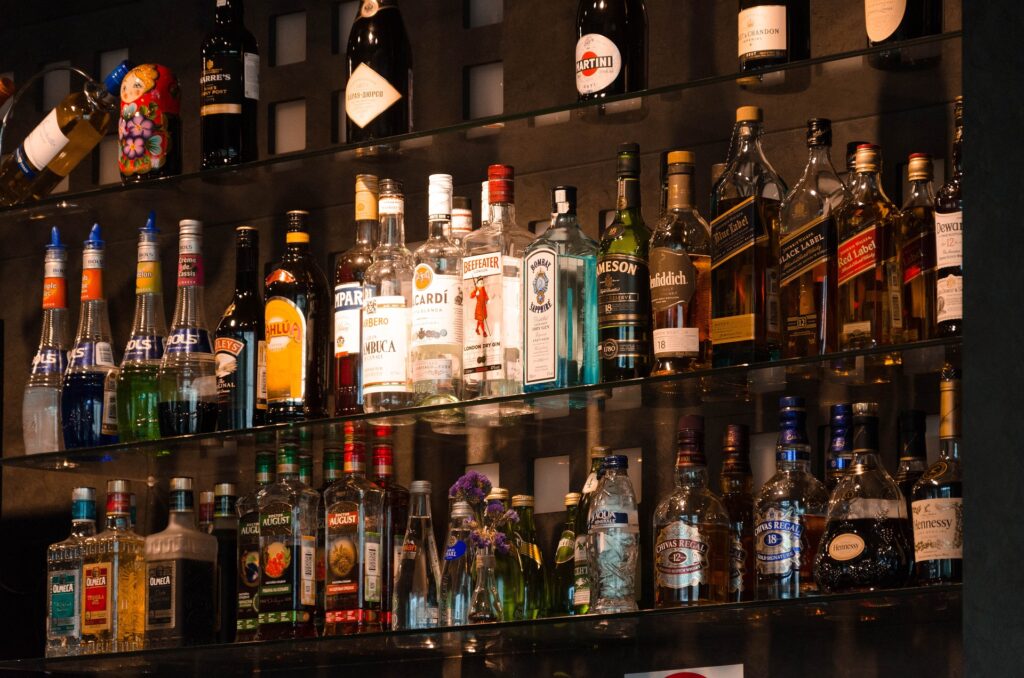
Building a Drinks Brand In Hospitality Venues
Getting your brand on the shelf is one thing; keeping it there is another.
In a competitive market of endless options, how does your brand stand out, earn loyalty, and become a constant in the bar scene?
To succeed, you need more than just a great product. It’s about relationships, reputation, and relevance in an ever-evolving industry.
The bar industry is vibrant, fast-paced, and filled with opportunities for drink brands looking to make their mark. But building a drinks brand isn’t as simple as securing a spot on the shelf.
For a brand to thrive, it needs to resonate with both the bars that serve it and the guests who experience it. Bars are constantly inundated with pitches from new brands, all vying for a place on the menu. So, how does a brand rise above the noise?
Here I will explore what it takes for a drinks brand to get listed and, more importantly, stay relevant in bars. We’ll discover what managers and bartenders really look for beyond retrospective deals and listing fees, what suppliers seek in a brand, and advice on building a drinks brand in hospitality venues.
From aftercare and marketing to building team advocacy, this is your guide to building a brand that bars are proud to serve.
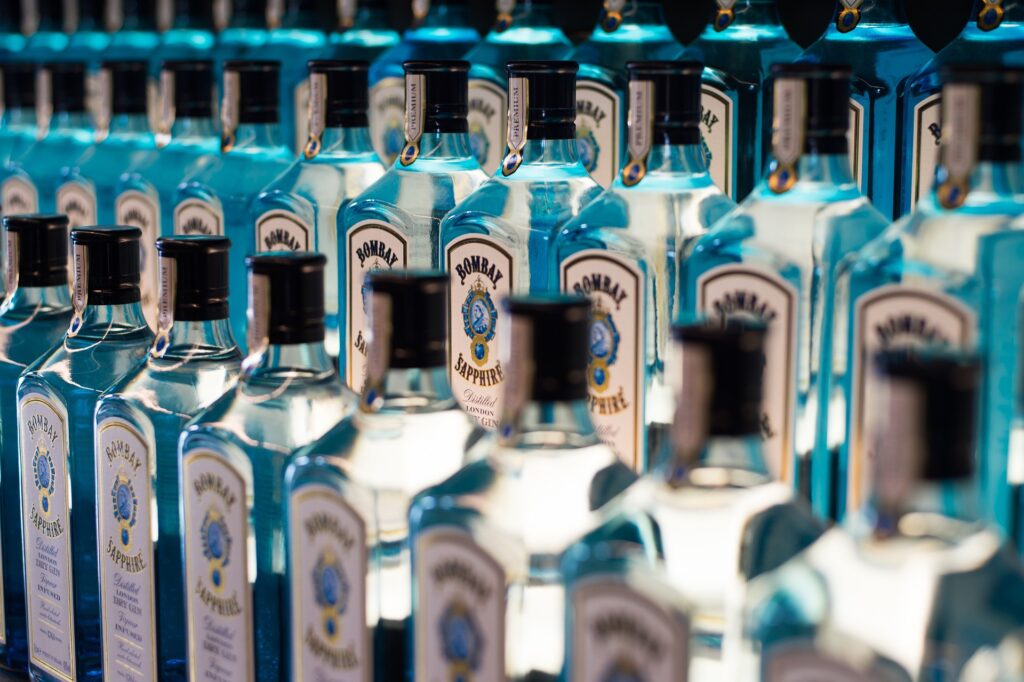
Understanding What Bars Are Looking For
The drinks industry is an incredible challenge for any brand other than those that have deep pockets. As is the case with most sectors, money really does talk and the big players on the market offer hospitality venues lucrative contracts to pour their products. That said, it’s not all about money and it is perfectly feasible to have success building a drinks brand without mega bucks.
Beyond Retrospective Deals & Listing Fees
The truth is, while financial incentives like retrospective deals and listing fees can open doors, they’re rarely the sole reason a bar chooses to partner with a brand. Managers and bartenders look for something deeper—something that complements their menu, resonates with their guests, and adds value to the overall experience.
Storytelling
A brand with a unique story stands out. Bars want to know the journey behind the bottle, the people, the passion, and the craftsmanship that make it unique. Whether it’s a family-owned distillery with generations of history or a brand committed to environmental sustainability, a strong identity gives bartenders something to connect with and share with guests and is a critical step in building a drinks brand.
taste & Versatility
Great taste is of course non-negotiable but also demonstrating versatility can stand you well. Venues often need a product that can shine across different applications—from sipping neat to being mixed in cocktails. Brands that offer depth and adaptability are more appealing because they give bartenders creative options to work with.
Visual Appeal
This is fundamental and is what pushes bartenders to choose one brand and put it on their shelves and menus. Labels that are striking, stylish, and in line with current trends are more likely to catch the eye. When a bottle’s design is distinct and Instagram-friendly, it becomes a talking point and a feature in social media content, which helps draw interest from customers and the bar teams alike.
Sustainability
As awareness around environmental impact grows, bars are increasingly selective about the brands they choose to represent. Brands that prioritize sustainable sourcing, B-Corp, eco-friendly packaging, and ethical practices demonstrate a commitment to social responsibility. This alignment with sustainability can be a deciding factor, particularly for venues that aim to lead in eco-conscious hospitality.
Reputation and customer demand
Bartenders and managers are always tuned into what’s trending and what customers are asking for. Brands with a positive reputation and established demand have a leg up because they already come with built-in credibility. Bars are more likely to take on a brand that has proven popularity and favourable feedback from other venues or industry leaders.
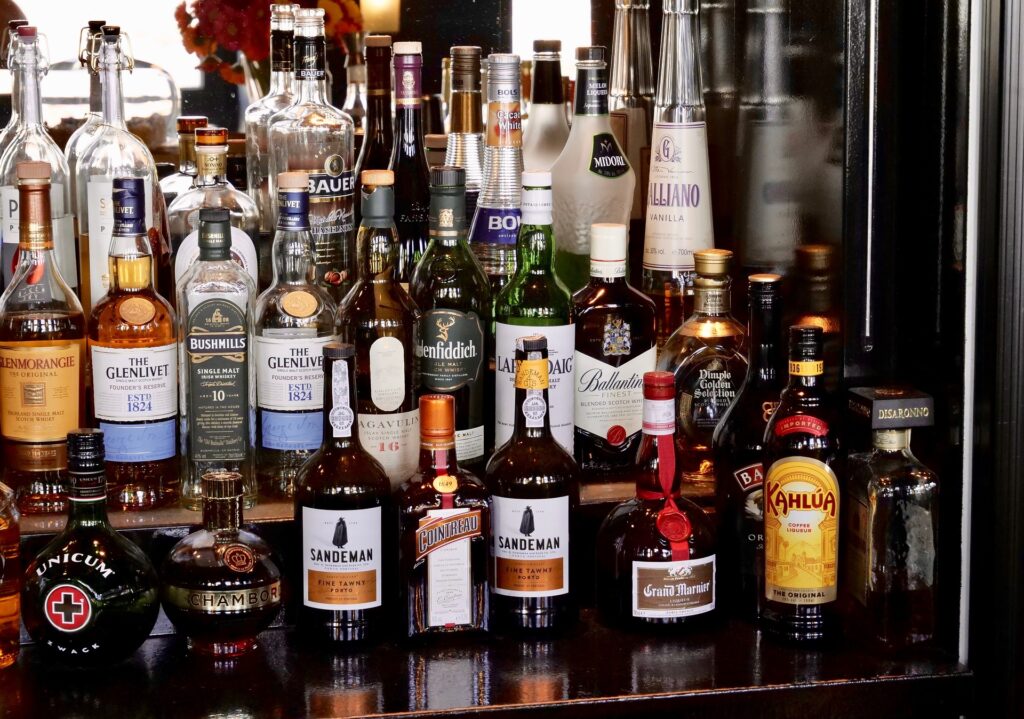
Getting Listed In Hospitality Venues
When building a drinks brand in venues it’s more than just pitching a product; it’s about offering a brand that aligns with their identity, meets their customers’ expectations, and contributes to their business goals. Before making an approach, here’s what brands should consider.
Bar Identity & Demographic
Every bar has its own personality, clientele, and service style. Whether it’s a high-end cocktail lounge, a busy neighbourhood pub, or a themed speakeasy, a brand’s success depends on how well it fits within the bar’s unique reality. Understanding the bar’s concept and typical guest’s preferences is key to demonstrating why your brand is the right fit.
Know the competition
Bars are flooded with products, so knowing which brands already have a presence can give you a competitive advantage. By understanding the bar’s current offerings, you can position your brand as a complementary addition or offer a unique twist that differentiates it from the competition. If the bar features premium gins, for example, showing how your product enhances that category—either with innovative flavours or a compelling brand story—adds appeal.
Lead With The USP
In a concise pitch, focus on what makes your brand different—whether it’s a sustainable production process, a standout flavour profile, or an interesting origin story. Bars want brands that are memorable and engaging, so make sure your key points stand out.
Benefits To Venue
Your brand’s pitch should communicate clear benefits for the venue. How will your product elevate their menu, attract guests, or increase sales? If you can showcase potential financial benefits, such as incentives for volume sales, you’re more likely to capture their interest.
Prove It
Bringing data or guests testimonials to back up your pitch can give you extra weight. If your brand has seen success at other bars or received positive press, these points add credibility. Providing a short track record of how your brand has performed in similar venues demonstrates its appeal and potential for success.
Don’t Just Leave A Bottle
Offering samples is one of the best ways to introduce your brand. Providing a sample kit with tasting notes, suggested cocktails, and branded collateral gives the bar team a hands-on experience. This personal touch helps build a connection and allows them to see (and taste) the value of your product firsthand.
Team Tasting
Go one better and hot a team tasting. If feasible, hosting a tasting session specifically for the bar team lets them experience your brand up close. Walk them through the brand’s story, highlight the flavour profiles, and offer pairing suggestions. This experience can create a lasting impression and turn bar staff into advocates for your product. Reciprocity is a very real psychological buying trigger.
Follow up with a personalized note
After the initial approach, follow up with a short, personalized note thanking them for their time and reiterating key points from your pitch. This keeps your brand top-of-mind and demonstrates your commitment to building a lasting relationship.
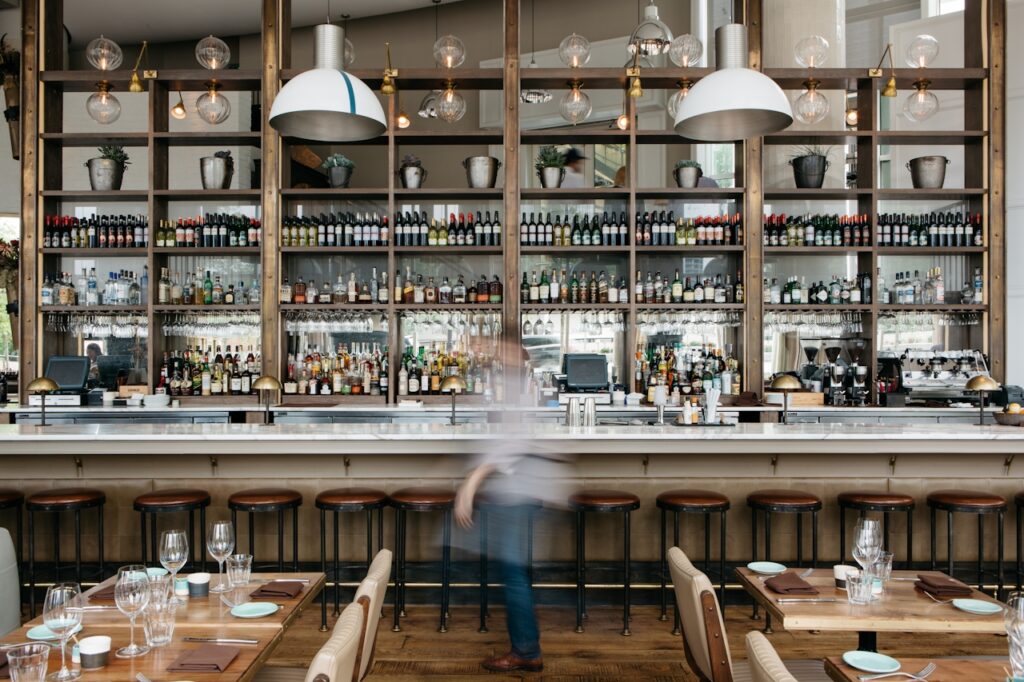
Listing Secured What Next
Securing an initial listing in a bar is a great first step, but real success comes from nurturing that relationship long after the first bottle is stocked. Providing reliable aftercare and ongoing support can make your brand a mainstay at the venue, helping to drive sales and build brand loyalty. Here’s how to deliver consistent support that keeps the partnership strong.
Reliable and consistent delivery
Timely delivery is essential. Bars rely on a smooth supply chain to keep operations running, especially during busy nights or special events. Brands that ensure prompt, reliable delivery schedules and have backup plans for unexpected issues earn the trust of bars and their teams. Consistency in both product and service quality is key to establishing your brand as a dependable partner. If you are a drinks brand, make sure you work with reliable wholesalers that also offer emergency delivery, out of hour emails, no minimum orders and a reasonable cut-off time when it comes to placing an order.
Training Materials
Leave behind brand guides, tasting notes, and suggested cocktails so the team can refer to them when needed. Get your brand ambassador to establish a direct link with your client. Consider creating pocket-sized guides that bartenders can keep at their stations, providing a quick refresher on your product. When the team is well-informed, they’re more likely to feel invested in the product and share it with guests.
Social media and digital assets
Collaborate with the bar’s marketing team to cross-promote on social media. Share content like high-quality images, videos, or social posts that feature your product in the venue’s setting. Digital assets showcasing your product in action help build excitement and encourage customers to engage with the bar to try your brand firsthand.
Events & Activations
Hosting joint events, like seasonal cocktail nights or exclusive tasting sessions, keeps the excitement around your product alive. Co-branded events are mutually beneficial, drawing in crowds for the bar and boosting brand exposure for you. This can be as simple as a cocktail night where your brand is the featured ingredient or an exclusive launch of a new product at the bar.
Team Sales Incentives
Incentivize the bar team by creating a reward program tied to product sales. This could include bonuses, gift cards, or brand merchandise for bartenders who meet certain sales targets. By offering rewards, you motivate the team to actively recommend your product, which drives sales and deepens their engagement with the brand.
Drinks Strategy
Supporting venue’s innovative serves and recommendations on occasion can be very effective in driving the rate of sale. Focusing on trend-led serve strategy as a brand can give you scalable serve communication, which is particularly welcomed by volume venues. Drink strategy also gives hospitality venues inspiration on how to use your products and for daily specials. Getting listed in cocktails or in stand-alone serves marketed by venues is a surefire volume driver.
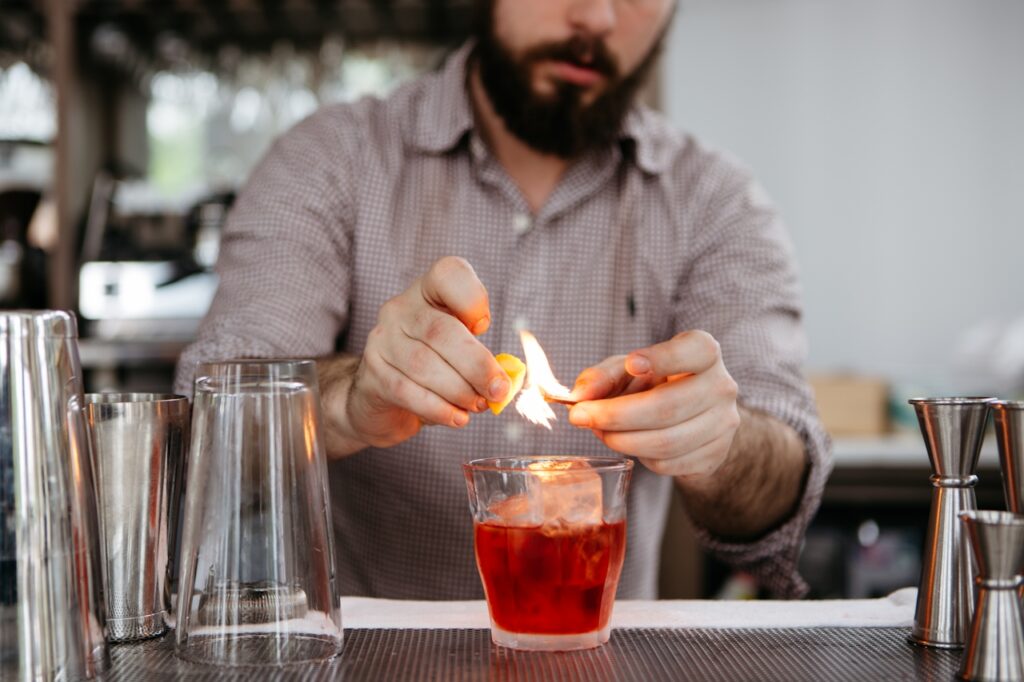
What Do Other Bartenders ThinK?
Bartenders are the gatekeepers of guest experience. Their perspective on a brand, and how they feel about it, directly impacts how often they recommend it to guests. To get a sense of what bartenders truly value in a brand partnership, I spoke to two friends from the industry to get their take: an experienced bar manager with years of industry knowledge and a newcomer just starting their journey.
Francesco, Bar Manager in a well-established cocktail bar in Shoreditch, London
According to Francesco, product quality and brand authenticity are essential. With years spent serving and mixing for guests, he knows what works and what doesn’t, and he values brands that contribute something meaningful to his bar’s offerings.
“After working behind the bar for over a decade, I’ve seen all kinds of brands come and go. What makes me stand behind a brand isn’t just the product; it’s the story, the support, and how well it fits the vibe of our bar. I’m not just serving drinks—I’m creating experiences for my guests. A brand that cares enough to invest in training, tastings, and real support stands out.
And it’s not just about adding another bottle to the shelf. When a brand aligns with our bar’s style and gives us tools to engage with guests, I’m more likely to recommend it. Training sessions where we actually taste and understand the product make all the difference. If I believe in what I’m serving, my guests will pick up on that energy.”
Sameer, junior bartender and working in a fine dining restaurant in Mayfair, London
A brand’s approachability and educational support are crucial in building confidence and loyalty.
“As a junior bartender, I’m still learning the ropes, so having brands that are approachable and willing to teach makes a huge difference. When a brand rep comes in and walks us through a tasting, explaining the flavour notes and the story behind it, I feel more connected to the product. And that confidence shows when I’m talking to guests.
I also love when brands offer incentives or competitions. It feels like they’re investing in us, not just trying to sell to us. It makes the job more engaging and encourages me to reach for their product because I know they’re supporting my growth, too.”
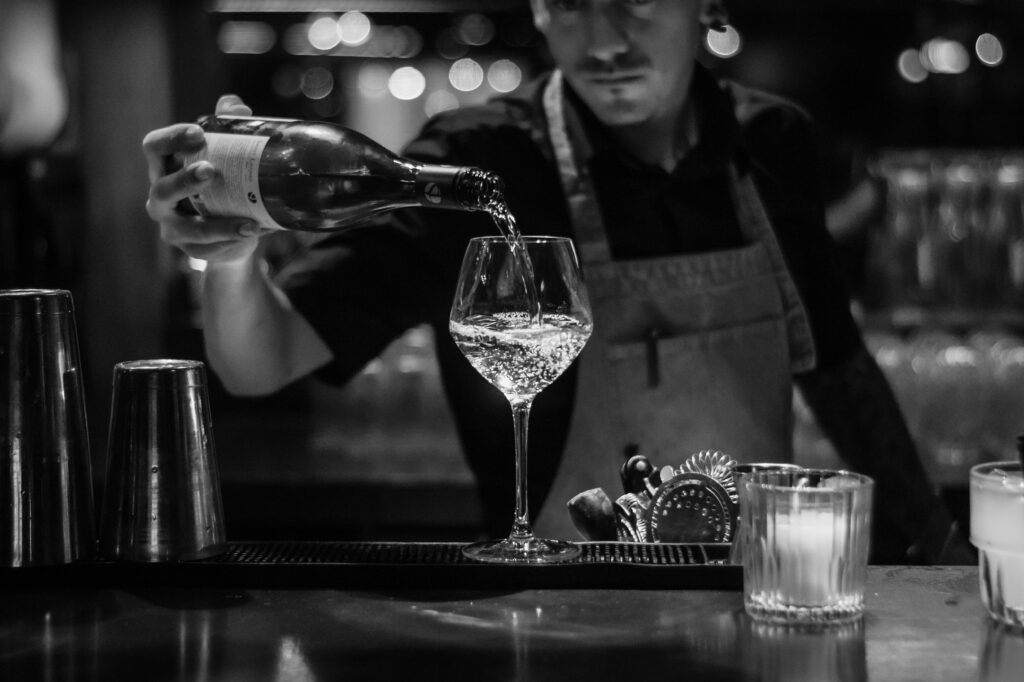
Conclusion: Making a mark in the industry
Breaking into the bar scene as a drinks brand is no easy job. It takes more than just a great product—it requires dedication, strategic support, and a commitment to building genuine relationships. From understanding what bars value to engaging with suppliers, training staff, and fostering advocacy, each step of this journey offers brands the chance to become an integral part of the bar community.
The path to success is paved with small but significant actions:
- Ensuring quality and consistency.
- Offering memorable experiences.
- Providing aftercare.
- Empowering bartenders to share your story.
When brands make the effort to go beyond transactions and invest in the venues, staff, and guests they serve, they create a ripple effect that builds loyalty and word-of-mouth growth.
The bars that stock your product aren’t just points of sale—they’re your partners, your ambassadors, and your front line. By focusing on these relationships and continually finding ways to add value, you’ll do more than just get listed; you’ll make an impact.
So, take these steps, build those connections, and watch as your brand moves from a name on the menu to a key player in the industry.
Want to know more? Feel free to reach out to our team to discuss our findings or discuss your brand’s strategic goals in 2025 by contacting us here.

Antonio Del Monte
Beverage Consultant
The author is an industry veteran who has worked across London's top hospitality venues in a 20+ year career. He is currently Head Of Bars for Park Chinois and his expertise lies in trends, the on-trade and developing drinks programmes.
